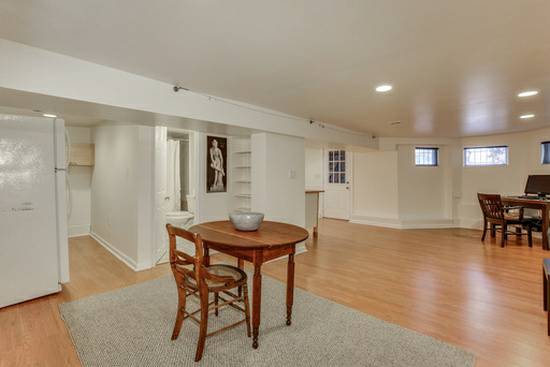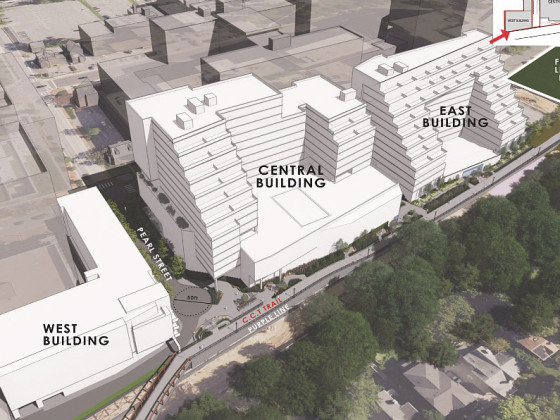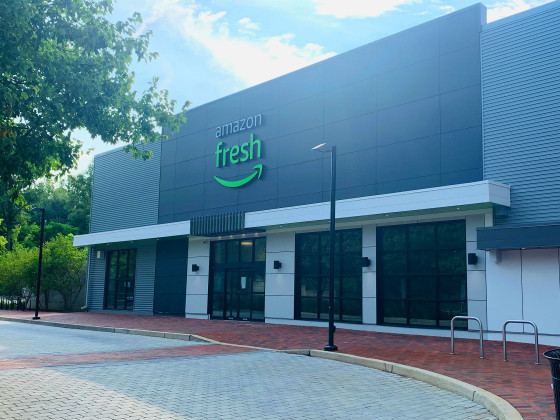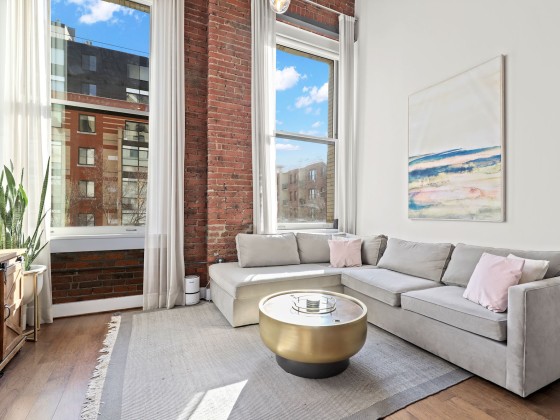 Zoning Changes in Depth: Accessory Apartments
Zoning Changes in Depth: Accessory Apartments
✉️ Want to forward this article? Click here.

An English basement in DC.
The DC Zoning Commission unanimously approved the city’s long-debated zoning changes last week, and over the coming weeks, UrbanTurf will take a closer look at the changes that are of most interest to our readership. This week, we look at the changes related to accessory apartments.
Accessory apartments in DC are additional residences located on the same lot as a single-family dwelling. Examples can be anything from an English basement to a carriage house, as long as it has its own kitchen and bathroom. Homeowners can rent but not sell these units.
Under current zoning regulations, owners of homes in low-density neighborhoods must go before the Board of Zoning Adjustment (BZA) for a special exception in order to have an accessory apartment. When the zoning changes go into effect in September, accessory apartments will be allowed for all types of city dwellings by-right, with special exceptions required only in Georgetown. Also, while houses with accessory apartments are currently required to be at least 2,000 square feet in size, the requirement will be lowered to 1,200 square feet in city neighborhoods where homes are generally smaller.
story continues below
loading...story continues above
Once the changes are enacted, accessory apartments can take up to one-third of the home’s total footprint; currently apartments can only take up a quarter of a home’s footprint. While accessory apartments must currently be inside the single-family home, accessory buildings will be recognized when the changes go into effect, as long as they have permanent access to a street or alleyway and do not have a roof deck.
Under the new regulations, the accessory dwelling’s entrance can only be added to the home’s front facade if it is below the main level; at this time, exterior entrances cannot be visible from the street. As of September, the accessory apartment can only have a maximum of three occupants, and the owner of the main residence will still be required to live there if the accessory apartment is rented.
Lastly, homeowners with accessory apartments will have to acquire a Residential Rental Business License from the Department of Consumer and Regulatory Affairs (DCRA) and undergo housing code inspections.
See other articles related to: accessory apartments dc, dc zoning changes, english basement, zoning changes, zoning commission
This article originally published at http://dc.urbanturf.production.logicbrush.com/articles/blog/zoning_changes_in_depth_accessory_apartments/10772.
Most Popular... This Week • Last 30 Days • Ever

While homeowners must typically appeal by April 1st, new owners can also appeal.... read »

A significant infill development is taking shape in Arlington, where Caruthers Proper... read »

A new mixed-use development would bring hundreds of new residential units and a healt... read »

A residential conversion in Brookland that will include reimagining a former bowling ... read »

After years of experimenting with its branded brick-and-mortar grocery concepts, Amaz... read »
DC Real Estate Guides
Short guides to navigating the DC-area real estate market
We've collected all our helpful guides for buying, selling and renting in and around Washington, DC in one place. Start browsing below!
First-Timer Primers
Intro guides for first-time home buyers
Unique Spaces
Awesome and unusual real estate from across the DC Metro













